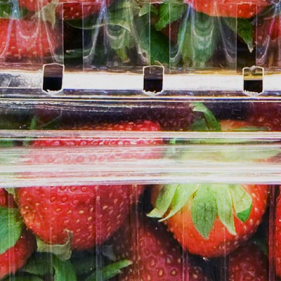Roland Keppler
Moovel GmbH, the mobility arm of Daimler, named Roland Keppler to the newly created position of chief operating officer in December 2014. The former Europcar CEO leads the business operations of Moovel’s car-sharing brand, Car2go, worldwide and is responsible for developing corporate customer relationships and expansion to Asia. Moovel, which has invested in a number of transportation apps and services, aims to be the “Amazon of mobility.” Keppler shared with Oliver Wyman his ideas for making “mobility 2.0” successful.

After initial rapid expansion and testing of new business models, mobility has started to grow up. What strategic directions do you see opening up for “mobility 2.0?”
Following on the global increase in smartphone usage and urbanization, we are noticing a growing interest in on-demand mobility and the use of multiple transportation modes. The smartphone is playing an expanding role in the integration of all mobility processes – not only by providing real-time information to the user, but because it enables booking, payment, and quick access to car and bike sharing. Smartphones likely will define future mobility. In addition, future mobility in urban areas will be an intermodal connected mobility. Flexible on-demand mobility services like Car2go or Mytaxi have already shown that they are the perfect supplement to traditional mobility services like public transport or car ownership, and could help reduce urban congestion and parking space shortages. The perfect mix of individual modes of transportation to get from point A to point B is basically what mobility 2.0 needs to focus on. Geographically, the huge Asian market is very interesting for us: How will flexible mobility services be adapted there? Will the Asian markets jump directly from traditional transportation options and payment methods to on-demand mobility and mobile payment?
What is necessary to make the business weatherproof?
In my opinion, there are three factors: Great and seamless customer experience is key. And from a system point of view that works, it is simply there. No hustle is required, one only has to experience the benefits of individual mobility. After high customer satisfaction comes a reliable product – on-demand and available 24/7. And last but not least, vehicle utilization must be sufficient to ensure sustainable economics.
What further differentiation do you see for mobility in the future?
Especially for flexible on-demand mobility services, easy and convenient access will be fundamental. Also important will be adapting mobility services to the local market and local infrastructure. The rapid development of new technologies and the evaluation of third-party data will influence the future of mobility in an intelligent way, as will the development of autonomous vehicles. All these changes will open up more opportunities for customers and for the business.
How strongly will mobility differ by region and in urban areas?
In the near future, large increases in traffic and population in urban areas are being predicted. More than half of the world’s population already lives in cities. Intensive urbanization is taking place particularly in the Far East. We see a growing desire for individual mobility and intermodality. These trends were the reason we developed our on-demand car-sharing scheme, Car2go, as an urban mobility solution. In rural areas, the concept of free-floating car sharing will not work – demand is just too low to sustain the large fleets required by this model. Station-based car sharing, however, is a mobility concept that can work in rural areas.
How do you see mobility and an OEMs’ core business interacting?
Car2go is a small but growing part of Daimler’s core business. The mobility services unit provides solutions for customers who don’t want to own a car, but enables the OEM to continuously connect with them, as needs and desires change during people’s lives. Car2go for example provides an alternative to private car usage for those who live downtown and who, at least for now, may not be able to afford a car, want to own one, or just simply don’t need to have one most of the time. Car sharing also is a solution for visitors to congested areas, who may not want to bring their own car into the city – it is easier to find an available parking spot with a Smart car or to save on parking fees. Otherwise, there are still many reasons to own a car, like living in suburban areas, having a family, or needing to commute long distances. These customer groups can use Car2go as a mobility alternative as well. An additional benefit for the core business is that every driver in a Car2go car is basically test driving a Smart fortwo vehicle. If customers decide to buy their own Smart car, we won’t be unhappy about it.
Besides mobility, which other areas will be greatly impacted by the “sharing economy?”
The sharing economy has already become established in many different ways, such as sharing a car, a house, a bike, or household items. You find B2C or P2P models now for a great variety of shared things. The generation that is now growing up with such offers will be much more open to shared products or shared services. Therefore the sharing economy could also come to dominate, for example, other traditional areas like banking and finance or retail.







